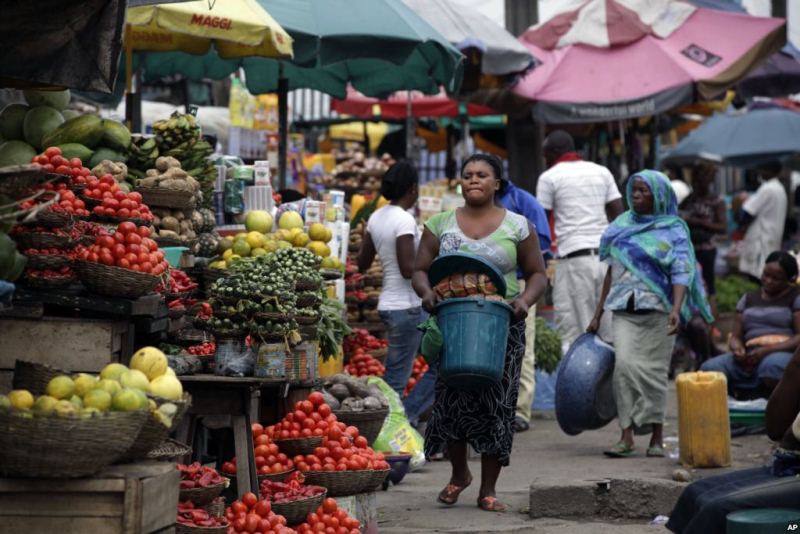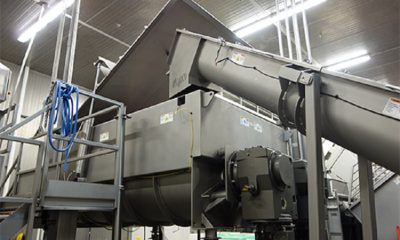General
Why Nigeria is Facing Worsening Food Crisis—Veriv’s Survey

By Adedapo Adesanya
A data insights company, Veriv Africa, has called for increased focus on tackling insecurity and boosting private sector involvement in the Nigerian agriculture to help staunch the growing food crisis in the country.
This was informed by its survey, Veriv Africa Nigeria Food Price Baseline Survey 2025, which found that the country is facing a worsening food crisis stemming from systemic challenges such low agricultural productivity, insufficient policies, dearth in policy harmonisation, as well as climate, geopolitical, and economic shocks.
The survey examined the state of Nigeria’s agricultural sector, focusing on six key crops: cocoa, sesame, rice, corn, tomato, and yam. The study, conducted across five case-study states, revealed critical challenges and opportunities within these value chains.
The report found that despite agriculture employing 30.1 per cent of Nigeria’s labour force and contributing 24.64 per cent to GDP, the country faces a food crisis with food inflation reaching 26.08 per cent in January 2025 and 33 million people are projected to experience food insecurity.
It warned that Nigeria’s crop yields are significantly below global averages, indicating substantial inefficiency in the sector.
According to the study shared with Business Post, Nigeria’s maize yields stand at 1.939.1 kilograms per hectare (kg/ha), significantly below the global average of 5,962.3 kg/ha and the African average of 2,154.8 kg/ha.
At the same time, rice yields in Nigeria (1,974 kg/ha) also lag behind the global average of 4.751.8 kg/ha and the African average of 2.313.3 kg/ha, citing data from the United Nation’s Food and Agriculture Organisation (FAO) data from 2023.
This is also similar across other select crops like cocoa, millet, and tomato.
The survey, which included 543 farmers, found that most farmers operate on small land holdings (1-4 acres) and rely on family labour and found that most farmers (60 per cent) finance their activities through personal savings, indicating a lack of access to formal credit.
The data also showed that key challenges faced by Nigerian farmers include lack of access to finance (54 per cent), insecurity (21 per cent), and post-harvest losses (12 per cent).
Farmers desire greater access to finance (52 per cent), improved security (22 per cent), and access to subsidised inputs (19 per cent) as key interventions.
Most farmers (64 per cent) feel better off than in previous planting seasons due to high crop prices, but over half of the surveyed expect the country to be worse off in the next twelve months.
While 82.5 per cent of farmers plan to continue with their primary crops, those who plan to change highlight high input costs, pests, diseases, and low yields as reasons.
Veriv recommended that addressing security challenges, attracting more private sector participation in food production activities, providing rural infrastructure, and establishing staple crop processing zones (SCPZs) in physical proximity to core crop-producing zones is a good course of action.
The firm also advocated democratising and decentralising agricultural extension services to farmers, adopting modern farming techniques, and promoting access to finance to unlock the sector’s potential and ensure food security.
Speaking on the survey, the co-founder of Veriv Africa, Mr Basil Abia, told Business Post that Nigeria lacks an updated central food production data and this survey provides a tentative outlook before the company releases a wider general agriculture data for the country, which will be released later this year.
“As the months go, we will add more crops and expand coverage regarding the value chains; we shall add another layer by 2027 with a beta test by December 2026. That layer is a for a marketplace and mostly for international businesses that want raw materials from Nigeria.”
He pointed out that the first phase of the project are important for social impact projects before evolving into serving corporate needs that will see companies have adequate data for making their decisions.
General
Nigeria’s Democracy Suffocating Under Tinubu—Atiku

By Modupe Gbadeyanka
Former Vice President, Mr Atiku Abubakar, has lambasted the administration of President Bola Tinubu for the turnout at the FCT Area Council elections held last Saturday.
In a statement signed by his Media Office, the Adamawa-born politician claimed that the health of Nigeria’s democracy under the current administration was under threat.
According to him, “When citizens lose faith that their votes matter, democracy begins to die. What we are witnessing is not mere voter apathy. It is a direct consequence of an administration that governs with a chokehold on pluralism. Democracy in Nigeria is being suffocated slowly, steadily, and dangerously.”
He warned that the steady erosion of participatory governance, if left unchecked, could inflict irreversible damage on the democratic fabric painstakingly built over decades.
“A democracy without vibrant opposition, without free political competition, and without public confidence is democracy in name only. If this chokehold is not released, history will record this era as the period when our hard-won freedoms were traded for fear and conformity,” he stressed.
Mr Atiku said the turnout for the poll was below 20 per cent, with the Abuja Municipal Area Council (AMAC) recording 7.8 per cent.
He noted that such civic participation in the nation’s capital, the symbolic heartbeat of the federation, is not accidental, as it is the predictable outcome of a political environment poisoned by intolerance, intimidation, and the systematic weakening of opposition voices.
The presidential candidate of the People’s Democratic Party (PDP) in the 2023 general elections stated that the ruling All Progressives Congress (APC) under Mr Tinubu has pursued a deliberate policy of shrinking democratic space, harassing dissenters, coercing defectors, and fostering a climate where alternative political viewpoints are treated as threats rather than contributions to national development.
He called on opposition parties and democratic forces across the country to urgently close ranks and forge a united front, declaring, “This is no longer about party lines; it is about preserving the Republic. The time to stand together to rescue and rebuild Nigeria is now.”
General
Nigeria Eyes Full Entry into Council of Palm Oil Producing Countries

By Adedapo Adesanya
Nigeria is set to validate a technical committee report geared towards transitioning the country from observer status to full membership of the Council of Palm Oil Producing Countries (CPOPC) in April.
Mr Abubakar Kyari, Minister of Agriculture and Food Security, said this when the council’s mission visited him over the weekend in Abuja, noting that the ministry had constituted a technical committee to consider how the country would seamlessly transit from observer country to membership in CPOPC based on its strategic importance in palm oil production.
“We are conscious of the fact that the palm oil value chain is very strategic for us and identified it as an export crop that can drive foreign exchange for the country and ensure good health in terms of consumption.
“We are conscious of the fact that we need the support of CPOPC countries to provide the country with a new variety of seeds that are climate-smart and resistant so that they can be produced by farmers in the country,” he said.
Mr Alphonsus Inyang, President, National Palm Produce Association of Nigeria (NPPAN), said being a member of CPOPC Nigeria would target over 10 million tonnes of oil palm between 2026 and 2050.
“We are also targeting 2.5 million hectares from among Nigeria households who are out to produce one hectare each, geared towards a N20 trillion annual economy within this period from among Nigeria households.
“We are working side by side with the big players who will be developing plantations,” he said.
The Secretary-General of CPOPC, Ms Izzana Salleh, said the council’s mission to Nigeria was to see how the country could transit from observer status to full membership, among others
She said that the status of the country as an observer nation since 2024 would expire by November.
Ms Salleh assured the country of the council’s readiness to support its vision to strengthen domestic production, enhance food security and build a competitive and sustainable palm oil supply chain.
The official emphasised that being a member of the council would strategically position Nigeria for a greater future regarding oil palm production.
According to her, the visit is to strengthen the council’s engagement with Nigeria, including potential membership in CPOPC.
She said: “The council’s mission to Nigeria aims to advance both Nigeria’s national ambitions and Africa’s collective voice in global agricultural discussions.
“CPOPC was established to promote cooperation among producing nations, empower smallholders, advance sustainability, and ensure fair, science-based global dialogue on vegetable oils.
She emphasised that being a member of the council would strategically position the country for greater future prospects regarding oil palm production and the value chain, as well as export.
“We are ready to support Nigeria’s vision to strengthen domestic production, enhance food security, and build a competitive and sustainable palm oil supply chain,” she said.
General
Violence Mars APC Ward Congress in Oluyole

By Modupe Gbadeyanka
The ward congress of the All Progressives Congress (APC) in Oluyole Local Government Area of Oyo State on Saturday left several party members injured after a violence clash erupted.
According to reports, one of the injured persons was Mr Idowu Oyawale, who served as the campaign Director General of a House of Representatives member in the last general elections, Ms Tolulope Akande-Sadipe.
It was disclosed that he sustained severe injuries during the exercise and is currently receiving treatment at an undisclosed hospital.
The ward congress was organised by the ruling party to elect ward executives across the local government’s wards.
However, it was disrupted at Olomi Ward 7 by suspected heavily-armed political thugs allegedly linked to a member of the party.
It was claimed that the thugs invaded the congress venue at Olomi Basic School 1, dispersing party members and officials supervising the exercise, with stones, clubs and other weapons.
Eyewitnesses said tensions escalated unprovoked over delegates’ lists and ward executive positions. The disagreement reportedly degenerated into physical altercations before the violent attacks on some party members.
It was learnt that security operatives led a tactical team to restore order, peace, and disperse the attackers.
Reacting to the incident, some party leaders and elders condemned the violence, describing it as unfortunate and capable of undermining the credibility of the internal democratic process.
The leaders have called on party chieftains and President Bola Tinubu to immediately order an investigation into the violent attacks.
-

 Feature/OPED6 years ago
Feature/OPED6 years agoDavos was Different this year
-
Travel/Tourism10 years ago
Lagos Seals Western Lodge Hotel In Ikorodu
-

 Showbiz3 years ago
Showbiz3 years agoEstranged Lover Releases Videos of Empress Njamah Bathing
-

 Banking8 years ago
Banking8 years agoSort Codes of GTBank Branches in Nigeria
-

 Economy3 years ago
Economy3 years agoSubsidy Removal: CNG at N130 Per Litre Cheaper Than Petrol—IPMAN
-

 Banking3 years ago
Banking3 years agoSort Codes of UBA Branches in Nigeria
-

 Banking3 years ago
Banking3 years agoFirst Bank Announces Planned Downtime
-

 Sports3 years ago
Sports3 years agoHighest Paid Nigerian Footballer – How Much Do Nigerian Footballers Earn
















